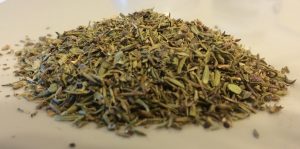 Anxiety can be quite debilitating for those who suffer from it. Though it is called a mental health condition, it can impact more than just your mental-emotional state, but your physical state as well. The percent of individuals who suffer from anxiety equates to approximately 12%, and 25% of Canadians will have experienced an anxiety disorder at least once in their life.
Anxiety can be quite debilitating for those who suffer from it. Though it is called a mental health condition, it can impact more than just your mental-emotional state, but your physical state as well. The percent of individuals who suffer from anxiety equates to approximately 12%, and 25% of Canadians will have experienced an anxiety disorder at least once in their life.
Naturopathic Medicine can help. Those who suffer from anxiety do not have to suffer alone. A Naturopathic Doctor can use many different therapies to aid with anxiety including:
- Traditional Asian Medicine and Acupuncture
- Botanical Medicine
- Nutrition, Diet and Lifestyle
- Hydrotherapy
- Homeopathy
- Physical Medicine
Ultimately, the goal of treatment will be to treat the root cause of disease. This will be different for each individual based on the cause of anxiety for that specific individual, eg nutrient deficiency vs. work-life balance. As a result, the following list offers examples as to what goals might be developed for a treatment plan for an individual:
- Correct for deficiencies
- Reduce stress or Improve stress management
- Improve coping mechanisms
- Alter diet to decrease inflammation in the gut and thus inflammation in the brain
- Alter lifestyle to
- Improve gut microbiology and digestion
How can Traditional Asian Medicine (TAM) help?
TAM views the body differently than western medicine. TAM theory suggests that when there is an imbalance in the body system, disease manifests. Each “organ” is associated with an emotion: Heart with joy and is the center of one’s personality, liver with anger, spleen with worry, and kidneys with fear. As one can see, all of these organs could play a part in anxiety, and so, individual cases are taken, and the root cause is determined. For some, anxiety can peak from fear of new situations, for others, maybe there is worry for the future, anger at the past, etc. Once a specific diagnosis is made, a treatment plan is created, and may involve using acupuncture, herbal formulas, diet, or lifestyle, all with the purpose of bringing the body back into a state of balance.
Specifically regarding acupuncture, acupuncture has been shown in some studies to be beneficial for anxiety and decreasing anxiousness. After 5 treatments of acupuncture, 87% of participants reported reduced anxiety. The following link offers the study: http://europepmc.org/abstract/med/10758845
How can Botanical Medicine help?
Botanical formulas have similar effects to medications, often without the side effects, however this is not true for all herbs and plants. Specific herbs or plants will be selected based on their properties and combined based on the specific individual’s presentation for anxiety. For example, one person may need help with sleep, where as one may need help with stress, in addition to needing some aid for relaxation and calming. Some beneficial properties that some useful herbs may have include: anxiolytic, nervine, sedative and adaptogenic.
There are several plants that have more research behind them in regards to their use in anxiety, but other plants exist that are effective as well. One of the most widely researched herbs for anxiety is Passion Flower. Passion flower is a plant that helps directly with GABA, which if out of balance, can cause anxiety. By regulating GABA, we can better manage and cope with anxiety and situations that can trigger it. When studied, passion flower was just as effective as some prescription anti – anxiety medications, without the side effects of the medications. The following link outlines this study: http://onlinelibrary.wiley.com/doi/10.1046/j.1365-2710.2001.00367.x/abstract;jsessionid=54269DE911C22557B84A56494B3073CE.f04t02?userIsAuthenticated=false&deniedAccessCustomisedMessage=
How can Nutrition and Diet help?
Anxiety can be aggravated or caused by various nutritional deficiencies. Therefore, it may be necessary to correct for these deficiencies in order to treat the root cause of the anxiety. In addition, various changes to one’s diet can help to decrease anxiety and decrease inflammation (and thereby decrease inflammation in the body, which may contribute to the anxiety). Based on your specific case, several classes of action may be recommended for you, and thus foods or supplements recommended. These actions might include: anti-oxidant, nervine, calming, carminative, or anti – inflammatory.
Research has shown that not only are certain nutrient deficiencies such as magnesium and b vitamins potentially causative factors for anxiety, but specific dietary patterns can be associated with anxiety. For example, diets higher in processed foods may be more associated with anxiety than those that are not. References for these two research articles are provided below.
http://online.liebertpub.com/doi/abs/10.1089/152460900318623
http://ajp.psychiatryonline.org/doi/pdf/10.1176/appi.ajp.2009.09060881
How can Hydrotherapy help?
Hydrotherapy involves alternating hot and cold water applications to achieve the following goals: promote detoxification and relaxation, increase circulation, improve immune system functioning, promote digestion, and decrease pain. Based on all of the following actions, hydrotherapy could be beneficial for anxiety based on different root causes. For example, if an individual is feeling anxious due to poor health or stress, hydrotherapy can help different organ systems to function optimally and help the individual to relax.
Hydrotherapy can be performed via a number of methods: constitutional hydrotherapy, sauna, peat bath, Epsom salt baths, or alternating hot and cold showers. These therapies may not be available at every naturopathic doctor’s clinic, but some can be performed at home. Very little evidence has surfaced for the efficacy of hydrotherapy to treat anxiety or how it benefits. Much of the research spans into the area of labour and prenatal care. One report suggested that hydrotherapy can be quite useful for anxiety and beneficial, but it was unclear as to how this effect was obtained (http://search.proquest.com/openview/cae635685aabc2e80cdfb049f2d42c5b/1?pq-origsite=gscholar).
How can Homeopathy help?
Homeopathy is an energy medicine that involves finite doses of a substance that are diluted in water, which amount to a higher therapeutic dose overall. In this form of medicine, individualized remedies are chosen based on the individual’s specific symptoms and presentation. Each person requires a different remedy based on their unique presentation. Homeopathy does not interact with any medications, making it quite useful especially if you are taking other medications.
In recent studies, homeopathy was shown to improve anxiety in 50% of the participants. Though homeopathy may have lower response rates according to this study, it may be an effective treatment for some who have run out of options, are on many medications, or respond well to homeopathy (http://europepmc.org/abstract/med/8997804).
How can Physical Medicine help?
Physical medicine involves a number of different potential therapies. These therapies might include ultrasound, laser therapy, electroacupuncture, or Gua Sha. The general effect of these therapies includes relaxation, increased circulation, decreased pain, and decreased inflammation. Similar to what was mentioned above, anxiety may be reduced through a relaxations effect or stress reduction effect from these therapies.
How can Lifestyle changes help?
Various lifestyle factors can play a role in anxiety. By improving sleep, exercise, scheduling, and stress management, it is possible that some individuals may have reduced anxiety or panic episodes. In some cases of anxiety, it can be created from lack of boundaries or feeling overwhelmed with work-loads and dead-lines. By addressing negative thought patterns, poor sleep patterns, lack of exercise, stress management, and work – life balance, one may experience a reduction in anxiety. Naturopathic doctors are trained to help individuals through lifestyle counselling, and can use methods such as motivational interviewing or cognitive behavioural therapy to do so.
Incorporating more exercise in the forms of strength training, yoga, and aerobic exercise may help to reduce anxiety and help individuals to gain a better management on stress (http://web.b.ebscohost.com/abstract?direct=true&profile=ehost&scope=site&authtype=crawler&jrnl=0002838X&AN=49094436&h=fddfgdKgS39I1V04PDapVEVH%2ft6x2g2YMEHa1y4Rt7n2sA%2f1OptEYVfzj0opf1f83CfxW6abWLcDDx4bbPu6ww%3d%3d&crl=c&resultNs=AdminWebAuth&resultLocal=ErrCrlNotAuth&crlhashurl=login.aspx%3fdirect%3dtrue%26profile%3dehost%26scope%3dsite%26authtype%3dcrawler%26jrnl%3d0002838X%26AN%3d49094436).
Have you benefited from reading this blog? Know someone that would benefit as well? Share, Like, Comment, or Tweet this article, and let me know what you think.
Some of the information provided above may not be appropriate for everyone, please consult with your doctor before trying any of the above. If you are interested in Naturopathic Medicine and wanting a different approach to your health care needs, contact Dr. Elisha Cook ND by calling 519-537-7058 and book your appointment today!
 Today’s society is very go, go, go, and often, we leave ourselves to last due to the demands of life itself. This can leave us feeling burnt out, tired, drained, and overwhelmed. When we over burden ourselves and drive ourselves to the point of exhaustion, it can be difficult to bounce back. By practicing some “Self-care” every day, it can help to prevent this breaking point.
Today’s society is very go, go, go, and often, we leave ourselves to last due to the demands of life itself. This can leave us feeling burnt out, tired, drained, and overwhelmed. When we over burden ourselves and drive ourselves to the point of exhaustion, it can be difficult to bounce back. By practicing some “Self-care” every day, it can help to prevent this breaking point.

